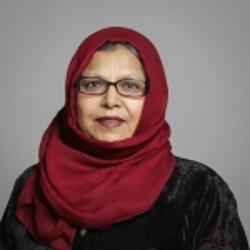Languages: Pre-school Education
(asked on 20th June 2023) - View SourceQuestion to the Department for Education:
To ask His Majesty's Government whether they collect information on ethnicity in relation to the language development of pre-school boys and girls.
The department does not collect information with regard to the language development of children in pre-school. However, the Early Years Foundation Stage (EYFS) statutory framework requires early years providers in England, ordinarily schools, to complete the EYFS Profile assessment at the end of the academic year in which children turn five years old, which is usually their reception year.
Each child’s level of development is assessed against 17 early learning goals (ELGs) across all 7 areas of learning in the EYFS, including communication and language. For each ELG, practitioners must assess whether a child is meeting the level of development expected at the end of the EYFS, or if they are not yet reaching this level and should be assessed as ‘emerging’.
The EYFS Profile results for the 2021/22 academic year show that 74.3% of boys were at the expected level of development in the ELGs within the communication and language area of learning, compared to 85.0% of girls. These results can be found in the attached document.
The statistics also include breakdowns by major ethnicity grouping and gender for the ELGs within the communication and language area of learning and the literacy area of learning. These statistics are available in the attached document.
To provide support for children’s early language development, particularly for those most disadvantaged, the government is investing over £28 million to provide targeted, intensive and evidence-based support to help parents chat, play and read with their young children. This investment is being delivered through the new 3 year family hubs programme which is being rolled out in 75 local authorities, with priority given to families that will benefit the most. This is supported by online resources that provide evidence-based, yet highly accessible advice and ideas for parents about literacy and early language activities for children at every stage between birth and five years old. These resources can be found at: https://www.nhs.uk/start-for-life/baby/learning-to-talk/learning-to-talk-0-to-6-months/.
Additionally, the department is providing a package of up to £180 million for workforce training, qualifications, expert guidance and targeted support for the early years sector to address the impact of the pandemic on the youngest and most disadvantaged children. As part of this, the Professional Development Programme Phase 3 (PDP3) has been made available to all local authorities in England and will train up to 10,000 early years professionals in communication and language. The department is also investing in the Nuffield Early Language Intervention (NELI), improving the language skills of reception age children who need it the most. The programme targets children needing extra support with their speech and language development and is proven to help them make around three months of additional progress. The department estimates that the programme will reach at least 90,000 children.

